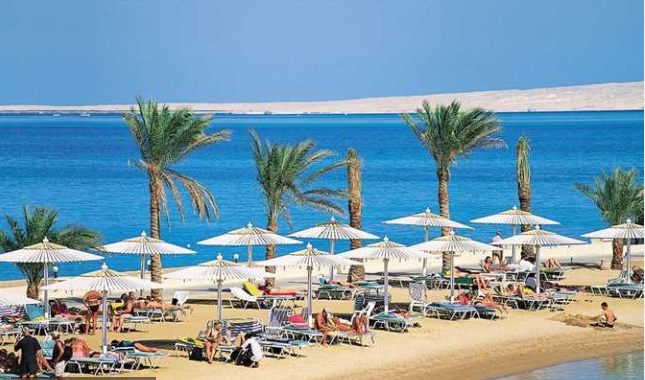A year long campaign to ban the use of plastic bags in Hurghada has resulted in a new law. As of 1 October, grocers and food venues have been using paper alternatives or asking customers to bring their own shopping bags.
Alternatively known as ‘flowers of the Egyptian desert, plastic bags frequently get tangled up in spiky shrubs, coloring arid landscapes in pinks and blues – an all too familiar sight as one exits Hurghada’s airport.
The wind also blows them out onto the Red Sea itself where, according to Sharon el-Shoura, manager of Emperor Divers, “they’re all over the reefs.”
The Hurghada Environmental Protection and Conservation Association (HEPCA), which led the campaign against the use of plastic bags, sees the new law as an effective way to tackle the source of the problem.
“We can continue to organize clean ups in the deserts, on islands and in the sea,” says Heba Shawky, HEPCA’s office manager, “but unless we stop the problem at the source, these sites will be almost as littered with plastic bags, within a week of cleaning them up, as they were before.”
The law, originally intended to come into effect in April, was postponed due to the need to offer an alternative to plastic bags before banning them. Helping to support the decree, HEPCA has distributed 50,000 cloth bags for free in the Red Sea area, with cover letters attached to each batch of bags explaining the health and environmental reasons behind the campaign.
The reaction to the ban is divided. For the environmentally aware it is a long overdue change, and excited Hurghada residents and dive operators express jubilation. However for people not shopping at large supermarkets such as Metro where paper alternatives are provided, and for those who haven’t received cloth bags from HEPCA or elsewhere, frustration with the new law is evident. “I went to the old grocers underneath my building and he gave me five bare eggs and some cheese in my hands,” says an incredulous Hurghada resident Mahmoud Abdallah.
“Ultimately, this is only going to work if we get people to realize the importance of re-using non-plastic bags,” says Shawky, adding, “It’s a matter of getting people used to it while encouraging them to make their own cloth bags, just like we used to do twenty years ago before plastic bags became the norm.”
Currently, the ban extends only to grocers and food venues, although newly opened hypermarket Spinney’s is proving reluctant to adopt the new measure, citing the need for more time.
While the penalties for using plastic bags are yet to be confirmed, the proposed fines include LE10,000 for the first incident, followed by closing down the offending venue for the period of a month if caught a second time.
Organizations such as HEPCA do not have the authority to prevent venues from using plastic bags, but it is hoped that the efforts of citizens to report places still using them, and to use their own reused shopping bags, will be sufficient to end the supply. For now, the addiction to plastic bags is still evident, if hidden, with one take-away venue in el-Gouna hiding its stash in the refrigerator – “only for our special customers,” explains a smiling shopkeeper.




